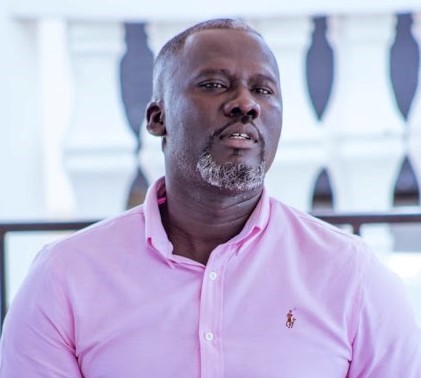The Kwahu people of Ghana are perhaps the only tribe who are distinctly described by Ghanaians as industrious, hardworking and business smart and, at the same time, unapologetically teased for these same attributes. The use of ‘Sika Aduro’ (ritual or blood money) or ‘Nziema Bayie’ (wizardry) for business success is some of the accusations made about the Kwahus’ source of wealth. They are also referred to as being ‘P3p33’ (misers) for their modesty and frugality in everything, except for the growth of their business and in putting up stately, grandiose mansions with distinctive architecture on sprawling acres of lush green land.
Historial accounts of how the Kwahu people became synonymous with entrepreneurial success and wealth prove that these negative descriptions, thrown about with careless abandon, are mostly figments of people’s imagination and, in some cases, a mischievous spin on their admiration for the Kwahu people.
One historical account is a fable in the 1968 journal article, “The development of Kwahu Business Enterprise in Ghana since 1874-An Essay in Recent Oral Tradition.” By Peter C, Garlick. It is said that the Pra River Diety asked the Asante and Kwahu people what gift they desired most. While the Asantes asked for food and drink, the Kwahus asked for entrepreneurial skills to enable them to succeed at trading. Garlick referred to them in his journal as the ‘Jews’ of Ghana.
In another account, their entrepreneurial success is attributed to their first-mover advantage in using the middleman role by virtue of being sandwiched between Ashanti and the Coast. It is believed that by 1914, thousands of Kwahu traders could be found almost everywhere in the colony and even in French West Africa.
They were bold and adventurous in trading, engaging in salt trading, carting copper bangles from salt pond, rubber business, textiles and even sandal-making as a way to penetrate local markets. They were also the first to sell goods from Europeans at the Coast to the hinterlands and northern regions whilst moving agricultural goods from the hinterlands to the Coast concurrently.
In a third version, their astounding business success and high shop ownership in Accra and the corresponding turnover trace their business activities back to the British-Ashanti war of 1874 when they broke away from the Ashanti confederacy. They kept trading until the 1920s, when the construction of the railway from Accra to Kumasi, growing road transportation, and the establishment of inland branches of the European firms reduced the price differences making inland trading less profitable than it used to be. And then, finally, in the 1930s, the spread of cocoa disease, swollen shot in the hitherto prosperous south-east pushed them to turn their attention to Accra. And to date, they have remained in Accra, excelling at their businesses.
To date, trading remains the most prestigious activity of the Kwahus for both males and females. And particularly for their young men who have little to no formal education, they engage in menial jobs to save the necessary capital to establish a shop. Another intriguing dimension to the enterprising nature of the Kwahu people is that the majority of the formally educated also own trading businesses or are engaged in a business of a sort, no matter how high up the professional ladder they may be. It is perhaps why some people conclude that trading is part of Kwahu’s genetic makeup.
The three accounts of how the kwahus acquired their unrivalled business acumen, although varying, highlights a common trait, their hardworking nature. A trait that has proved wrong the perception that petty businesses cannot build a solid capital base for more significant growth and investment.
From their days of literally taking over Okaishie in Accra and making business sense and success of whatever they could find to trade in, Kwahus have contributed immensely to Ghana’s economic development. Popular places like the drug lane, Tudu, Rawlings Park, Abossey Okai, etc., hold years of the rich history of the struggles and resilience of the Kwahu people to turn into gold whatever they touched.
An interesting dimension to their trading style is the involvement of their wives and children in the business, with children spending most of their vacation learning the rudiments of the trade. Of significance also is the prowess that most Kwahu women demonstrate in trading. Like their male counterparts, they are a force to reckon with and exhibit a keen sense of diligence resulting in great success for their enterprise.
In the last couple of decades, Kwahus have grown their businesses remarkably and ventured into manufacturing, construction, hospitality, and the pharmaceutical sectors. The Rock Citys, Alisas, Ernest Chemists, Metallex, Fon tissues, Black Parks, Telvans, etc., of Ghana represent the early entrants into these sectors, and like trade, they have excelled. Deploying strategies covering product and market development, market penetration and diversification, these Kwahus have grown their businesses competitively by keeping up with the appropriate tech trends.
The story of the enterprising Kwahu gets even more inspiring and exciting with their continued hold of the enviable position of what successful entrepreneurs are and what they should be. New Kwahu businesses continue to emerge and expand across all sectors. Some have argued that Kwahus in trade rarely develop beyond one-man companies. This assertion is debatable because many trading businesses have grown beyond their original owners.
However, one thing that is not in doubt is the immense contribution that Kwahus have made to the country’s economic development. The formidable generational businesses and sophisticated set-ups they continue to build speak to a singular truth-their entrepreneurship brilliance and ingenuity, which should not only be admired but emulated.
References:
Kweku Darko Ankrah, Kwahu Easter and the history of the people, June 2016
The development of Kwahu Business Enterprise in Ghana since 1874-An Essay in Recent Oral Tradition.” By Peter C, Garlick.
>>>The writer is the President of the Kwahu Professionals Network. He hails from Bepong in Kwahu. He is the CEO of Edge S & S, a sourcing and supply company and a logistician. He can be reached via, [email protected]










